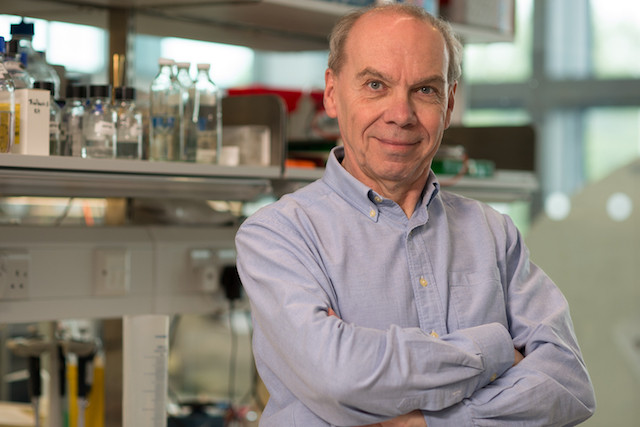Professor Michel Goedert proved that the tau protein is the most important constituent of the tangles we see inside the neurons in Alzheimer’s. Goedert was also instrumental in proving it likely that tau itself plays a role in the development of Alzheimer's.
“Goedert’s most recent and very exciting discovery is that tau can spread within the brain. With this discovery, Goedert has shown that Alzheimer’s is more than just an accumulation of beta-amyloid. It has given us valuable new ideas for the development of therapies,” said Steen Hasselbalch, Professor at the University of Copenhagen and Alzheimer's specialist.
Goedert has worked at the Medical Research Council Laboratory of molecular biology in Cambridge as a programme leader since 1984 and was head (joint or sole) of its neurobiology division between 2003 and 2016. Since 2014, he has also been an honorary professor of experimental molecular neurology at Cambridge University.
He was one of four scientists along with Bart De Strooper, from Belgium, Christian Haas, from Germany, and John Hardy, from the UK, to be awarded the €1m prize.
“Together, these four internationally respected neuroscientists have revolutionised our understanding of the harmful changes in the brain that lead to Alzheimer's disease. Their research achievements form the basis for development of the drugs that are currently tested as therapies for the disease,” the Lundbeck Foundation, which awards the prize, said in a statement.
The four will claim their prize at a ceremony in Denmark on 9 May.
